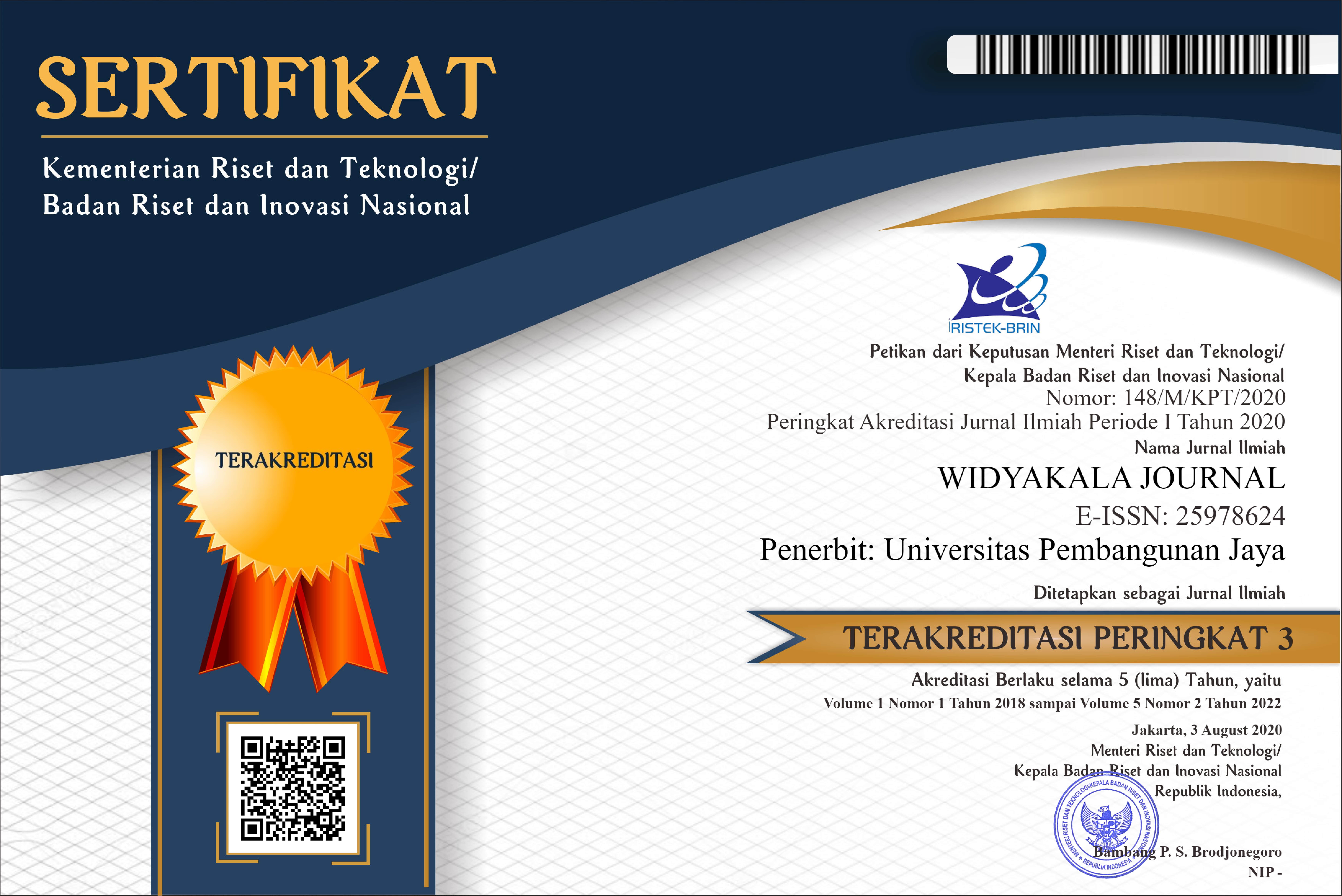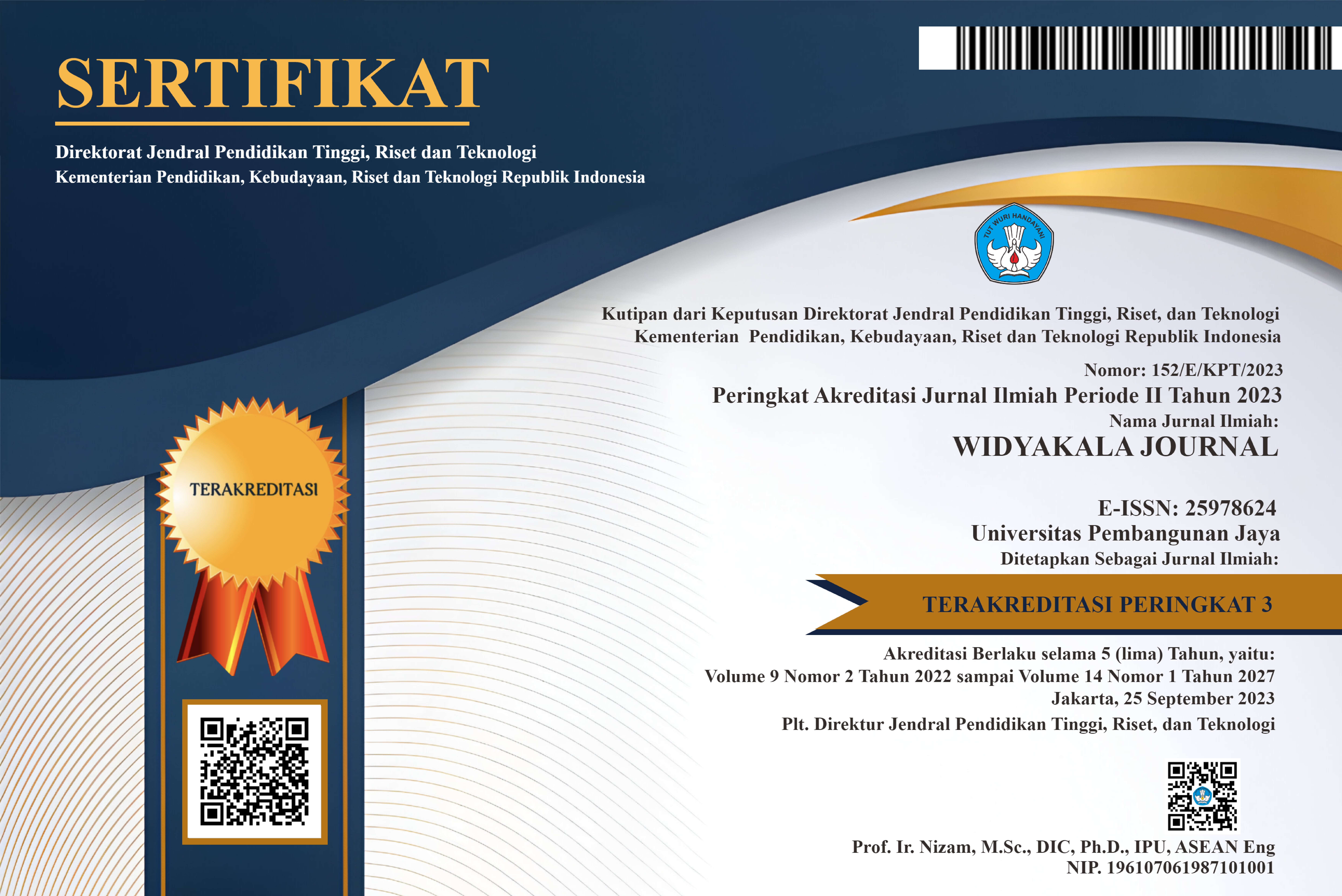Updated, March 2025
Determinants Factors of Crafters Performance of SME’s at Tapis, Province of Lampung
Abstract
This study aims to analyze and prove empirically the influence of managerial ability, work culture, organizational characteristics both partially and simultaneously on the innovation capability and performance of crafters at Tapis SMEs in Lampung Province. The research methods in this research are descriptive and verification methods. The population was 1,302 Tapis crafter in Lampung Province and a sample of 305 and as owner crafters as respondents, with questionnaires as data collection techniques, and data analysis technique was Structural Equation Modeling (SEM), using Lisrel 8.70. The results showed that partially or simultaneously, managerial ability, work culture, and organizational characteristics had a positive and significant influence on the capability of innovation. The results of this study also showed a positive effect of managerial ability, work culture, and innovation capabilities on the performance of crafters at Tapis SMEs in Lampung Province. Innovation capability can act as an intervening variable that strengthens the influence of managerial ability, organizational culture, and organizational characteristics on the performance of crafters the most dominant work culture influences the performance of craftsmen is 0.356.
Keywords
Full Text:
PDFReferences
Çakar, N. D., & Ertürk, A. (2010). Comparing innovation capability of small and medium‐sized enterprises: examining the effects of organizational culture and empowerment. Journal of Small Business Management, 48(3), 325–359.
Camps, J., Oltra, V., Aldás‐Manzano, J., Buenaventura‐Vera, G., & Torres‐Carballo, F. (2016). Individual performance in turbulent environments: The role of organizational learning capability and employee flexibility. Human Resource Management, 55(3), 363–383.
Chen, D. (2011). Research on performance management of Chinese SME. International Journal of Business and Management, 6(4), 263.
Fatoki, O. O. (2011). The impact of human, social and financial capital on the performance of small and medium-sized enterprises (SMEs) in South Africa. Journal of Social Sciences, 29(3), 193–204.
Hajar, I. (2015). The Effect of Business Strategy on Innovation and Firm Performance in the Small Industrial Sector. The International Journal of Engineering and Science, 4(2), 1–9.
Helfat, C. E., & Peteraf, M. A. (2015). Managerial cognitive capabilities and the microfoundations of dynamic capabilities. Strategic Management Journal, 36(6), 831–850.
Ikupolati, A. O., Medubi, R. D., Obafunni, M. O., Adeyeye, M. M., & Oni, E. O. (2017). Small and medium enterprises (SMEs) as a source of human capacity building in Nigeria. Journal of Small Business and Entrepreneurship, 5(1), 35–42.
Kanten, P., Kanten, S., & Gurlek, M. (2015). The effects of organizational structures and learning organization on job embeddedness and individual adaptive performance. Procedia Economics and Finance, 23, 1358–1366.
Kurniawan, D., Lubis, A. R., & Adam, M. (2012). Pengaruh budaya kerja dan motivasi kerja terhadap kinerja karyawan International Federation Red Cross (IFRC) Banda Aceh. Jurnal Ilmu Manajemen, 1(1), 132–146.
McPherson. (2007). Ownership structure of SME’s and the challenges it presents to their Growth. Journal of Management, 34(3), 375–409.
Meliza. (2013). Faktor-faktor yang mempengaruhi persepsi kesuksesan usaha kecil menengah (UKM) di wilayah DKI Jakarta. Ekstensi Manajemen. Jakarta: PEFE Universitas Indonesia.
Mochklas, M. (2016). Role of Leader in Creating Organizational Culture and Product Innovation to Reach Sustainable Competitive Advantage (Study on Ngingas Metal Village SME of Sidoarjo, East Java). The International Journal of Business & Management, 7(4), 251–256.
Ngacho, C., & Das, D. (2014). A performance evaluation framework of development projects: An empirical study of Constituency Development Fund (CDF) construction projects in Kenya. International Journal of Project Management, 32(3), 492–507.
Rahab, Sulistyandari, & Sudjono. (2011). The development of innovation capability of small medium enterprises through knowledge sharing process: an empirical study of Indonesian creative industry. International Journal of Business and Social Science, 2(21), 112–123.
Rismawati. (2017). Budaya kerja, Motivasi dan peningkatan Quality of Worklife (QWL) dalam mempengaruhi kinerja perajin pada Industri Kecil Klaster Lurik di Kabupaten Klaten. ISEI Cabang Serang: Forum Ekonomi dan Sosial ke 1.
Sitohang, S. (2010). Pengaruh Kualitas Sumber Daya Manusia Terhadap Kinerja Pengrajin Sentra Industri Kecil Tenun Ikat. EKUITAS (Jurnal Ekonomi Dan Keuangan), 14(1), 57–81.
Siyamtinah, Sulistiyo, H., & Rahmani, E. (2011). Model Peningkatan Kinerja melalui Kapabilitas Inovasi pada UKM di Semarang. Seminar Nasional Ilmu Ekonomi Terapan. Fakultas Ekonomi UNIMAS.
Slater, S. F., Mohr, J. J., & Sengupta, S. (2014). Radical product innovation capability: Literature review, synthesis, and illustrative research propositions. Journal of Product Innovation Management, 31(3), 552–566.
Sulistiyani. (2010). Pengaruh Kemampuan Manajerial Kreativitas Program Pemasaran dan Kemampuan Berinovasi Terhadap Kinerja UKM di Kota Semarang. Jurnal Pemikiran & Penelitian Ekonomi Islam, 1(1).
Yanuarto, E., & Kumorohadi, U. (2013). Peran Kapabilitas Inovasi Terhadap Perbaikan Produk Usaha Kecil Menengah (UKM) Dengan Tekanan Lingkungan dan Ukuran Perusahaan Sebagai Variabel Moderasi (Studi pada UKM di Kabupaten Purbalingga). Performance, 16(2).
DOI: https://doi.org/10.36262/widyakala.v8i1.409
Refbacks
- There are currently no refbacks.
Copyright (c) 2021 WIDYAKALA: JOURNAL OF PEMBANGUNAN JAYA UNIVERSITY

This work is licensed under a Creative Commons Attribution-ShareAlike 4.0 International License.
Redaksi Jurnal Widyakala
Lembaga Penelitian dan Pengabdian Kepada Masyarakat (LP2M)
Universitas Pembangunan Jaya
Jalan Cendrawasih Raya Blok B7/P, Sawah Baru, Ciputat, 15413
Telp : 021-7455555 ext 1311
widyakala.journal@upj.ac.id


















